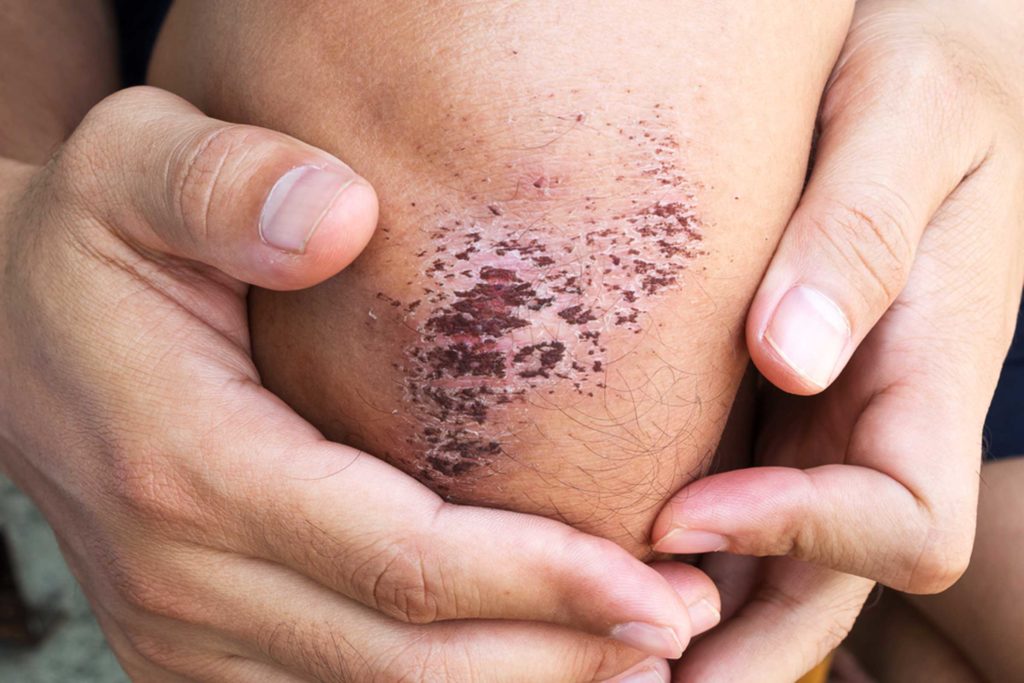רפאנו ה’ ונרפא… וְהַֽעֲלֵה אֲרוּכָה וּמַרְפֵּא לְכָל־תַּֽחֲלוּאֵֽינוּ וּלְכָל־מַכְאוֹבֵֽינוּ וּלְכָל־מַכּוֹתֵֽינוּ /Refaenu Adonay ve’nay’rafeh…. Ve’ha’aleh arukha u’marpeh lekhol tah’lueinu u’le’khol makhoveinu u’le’khol makotenu. “Heal us and we will be healed … let arise a healing scab to all our suffering, pains and wounds.”
The eighth blessing in the Amidah is for healing, or refuah. The Talmud [Megillah 17b] comments that healing was fixed in this order as a sly reference to circumcision – the eighth blessing to heal the baby boys wounded on the eighth day, as they seal the covenant in their bodies.
What are we doing when we pray for refuah?
Do we imagine that prayer is a matter of asking nicely for God’s gifts? Is there is a cosmic pharmacy holding scarce medicine, so we must say the right formula to obtain the needed prescription? Or perhaps we imagine that God arbitrarily decides to heal Rebecca Rosenbaum and not heal Deborah Davidson, so we better implore God to direct the good vibes our way?
None of that works for me, as a davvening Jew. Assigning God responsibility for whose health improves and whose declines creates many more religious problems than it solves. I might get to say Barukh Hashem when my loved one rallies, but then, to quote Mrs. Job, I will have to “curse God and die,” when she falters.
And yet I know that prayers for healing are tremendously important to people who come to worship, both in the Amidah and during the Torah reading. It can be profoundly moving to pray when visiting bedsides of the sick, at home or hospital. We close our eyes, hold their hands, recite their Hebrew names, invoke their parents’ names; we summon up empathy and beneficence. For those who are ill, it can be deeply comforting to know that their names ring out in synagogue as hundreds of people wish them strength.
I’m Ashkenazi by descent but a Sefardi wannabe in some ways. Certain features of Sefardi or Mizrahi liturgy really work for me, including the version of the blessing of refuah, quoted above. The classical Ashkenazi version seeks refuah shelemah, or “complete healing” from all our injuries. As the Brian Wilson said, wouldn’t it be nice. When I hear or say the phrase refuah shelemah, it appeals to me for its hopeful grandeur: its wish that we will be “all better,” completely healthy. But that very grandeur is what makes it fall short, in my davvening. Refuah shelemah? We’re never completely healthy. We all have breaks and cuts and scars.
But the Sefardic version, quoted above, makes a more modest plea: “for an arukhah to arise.”
This rare noun for healing appears only six times in the entire Hebrew Bible. Its simplest meaning refers to the process by which broken skin lengthens (hence the connection with the root ארך) and binds to flesh across the wound [see R. Meir Leibush Weisser, aka “Malbim” to Jeremiah 30.17, and standard biblical lexicons]. This “scabbing over” describes both a restoration of wounded bodies and broken buildings, especially repairing the walls of Jerusalem [Nehemiah 4.1; 2Chron 24.13]. From those literal applications, the term acquired a metaphorical dimension, describing a national healing, e.g. Isaiah 58.8, the Haftarah for Yom Kippur, and especially Jeremiah 30.17, the source for the Sefardic blessing text:
Though you are called “outcast, Zion whom no one seeks,” אעלה ארוכה לך, I will make a healing scab for you and cure you of your wounds.
Metaphors are lovely when they grow abstract. But I’d like to turn this one back to its full concreteness to appreciate how it might enhance our davvening: Our wounds do not disappear with a divine pill or a magic spell. But our miraculous bodies contain within themselves the power of restoration and renewal. May our physical injuries slowly heal of themselves, as our bodies fight off infection, as flowing blood stanches itself and hardens, and new skin grows over old injuries. Our spirits have the same capacity for inner recovery. May our spiritual wounds experience the same renewal: broken hearts learn again how to beat in time, eyes reopen to see, crushed spirits regain the capacity to hope.
When I davven, refuah shelemah seems too much to hope for. But arukhah is within reach, as we sense our skins and hearts experiencing scabs of healing. Blessed are You, God, for clotting factors, anti-bodies, white blood cells, patience, serenity and hope.





